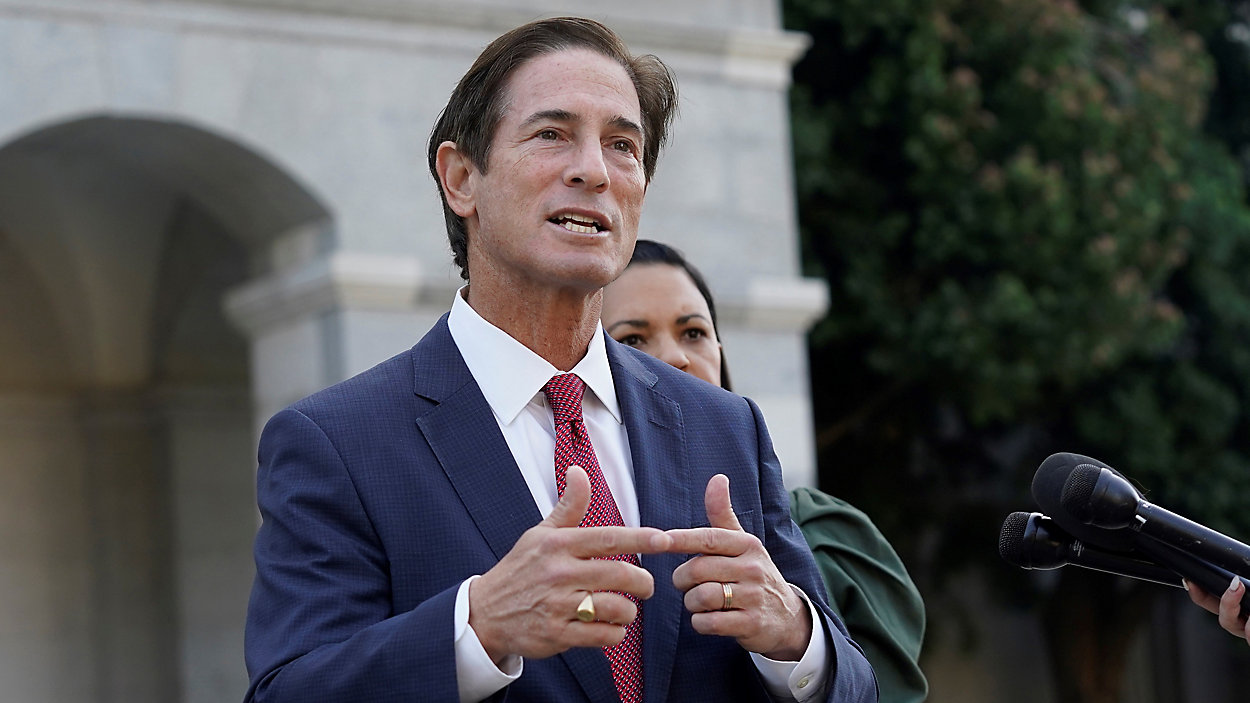More bad news for job seekers—especially non-grad Gen Zers. Just because an employer claims it’s ditching degree requirements to recruit more diverse talent, that doesn’t mean its hiring managers are actually doing it.
When major employers like Google, Microsoft, IBM, and Apple all eliminated their long-held degree requirements for jobs, other firms rushed to follow their example. But that promise may be limited to their job ads.
Goodwill’s CEO Steve Preston told Fortune that while most CEOs have good intentions, they can’t control every interview or job offer. And so the promise of skills-first hiring may not be reaching the millions of jobless Gen Zers who need it.
“Right now, employers are consistently saying they want to hire for skills, not necessarily degrees,” Preston said. “But the proof is in the pudding. Not everybody does it.”
“What I hear from a lot of people is, yeah, the top says we need to do this, but when it gets to the hiring professionals, it doesn’t always trickle down.”
The charity, has over 650 job centers and saw over 2 million people use its employment services last year—and Preston said that he’s preparing for an influx of jobless Gen Zers thanks to automation.
Gen Zers without degrees are struggling most with unemployment
While the opportunities for young people without degrees are certainly growing, Preston says they’re ultimately still more likely to face unemployment than Gen Zers with degree.
“What I’m seeing is, of the overall unemployment, people without college degrees have no jobs,” the 65-year-old CEO, who formerly served as the 14th United States secretary of housing and urban development, revealed. Research has shown that the issue is even more acute for young men.
“It’s much harder to find a job,” Preston added. “It’s really hitting college students right now in the marketplace. It’s really hitting young adults without college degrees.”
So why are hiring managers still shutting the door on people who didn’t go down the higher education path, despite such a clear push to do the opposite?
“I think when somebody comes out with a four year degree from college, there’s a certain sense that that person has a foundation that will be valuable in the workplace, and there’s a suspicion that if somebody hasn’t done that, they may be lacking some core skills,” Preston said, while pointing to critical thinking, team building and communications as potential skills built from school projects and essays.
“So somebody with a strong collegiate background provides a high degree of comfort that these other capabilities are in place,” he added.
“It’s also just easy to interview people who are like you, if you went to college, if you’ve gone down a particular pathway, you speak the same language, you have many of the same experiences. It’s much easier to connect with somebody who’s like you.”
For young people without degrees, Preston argued the key is proving you’ve built those prized skills elsewhere—whether that’s through upskilling, volunteering, or work experience. Even joining a sports team can help open doors because it teaches you confidence, teamwork, discipline, and more. “Employers have to be able to see that many of those capabilities are acquired in different ways.”
For closed-minded employers, Preston stressed that the research is clear: Inclusive hiring isn’t just the right thing to do, it’s also good for business.
“Organizations that have a much broader aperture in looking for talent are more likely to have, the roles in their organizations filled; they’re much less likely to say that they’ve got deficiencies in their team; they’re more likely to say they’ve got a healthy workplace; and they often find higher engagement scores among their teams because of the culture that they’ve created,” he added. “Honestly, I think that’s important for society as well, on many levels.”






















